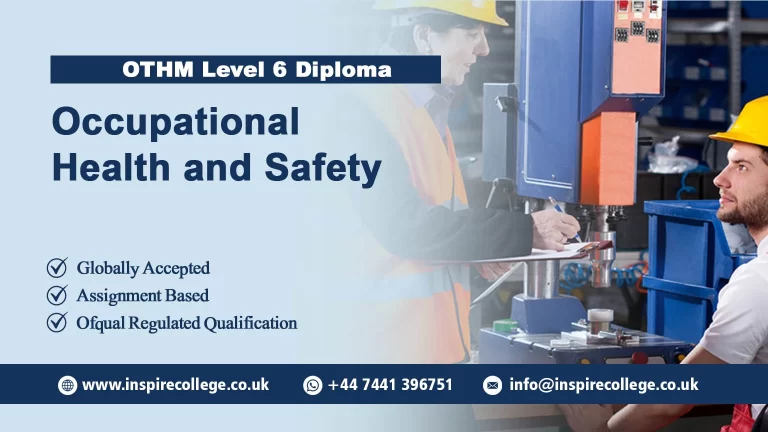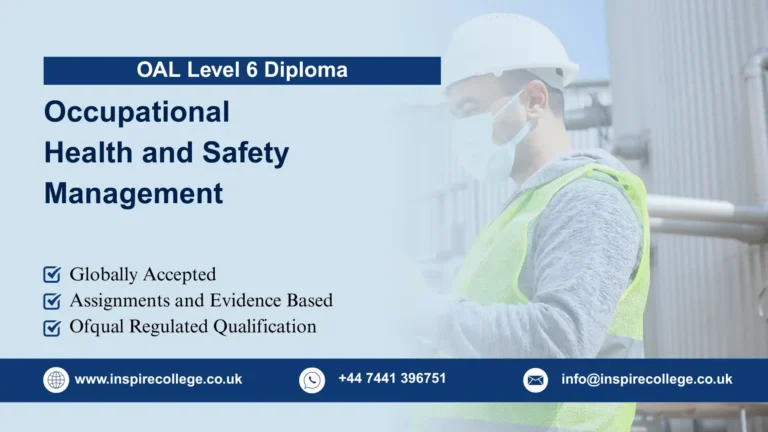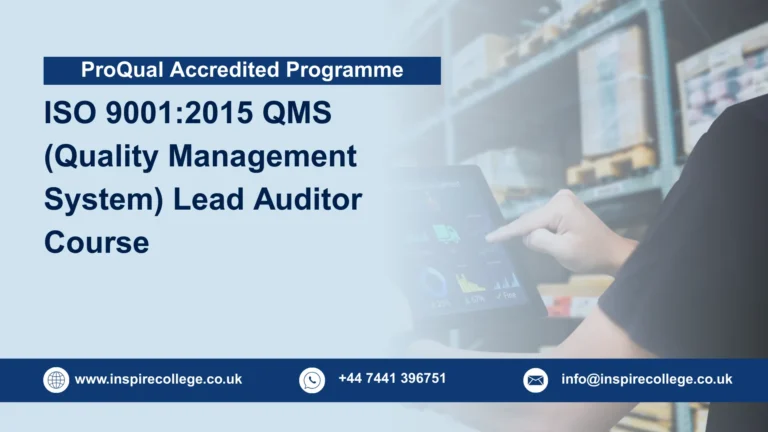ISO 45001:2018 Occupational Health and Safety Management Systems Lead Auditor Course
ISO 45001:2018 Lead Auditor Course | Advance Your Career
Awarding Body : ISO
Study unit : 06
GLH : 32 Credit Hours
TQT : 320 Total Qualification Time
Become a Certified ISO 45001:2018 Lead Auditor
In today’s fast-paced work environment, maintaining the health and safety of employees is a top priority. ISO 45001:2018, the international standard for Occupational Health and Safety Management Systems (OHSMS), provides organizations with a structured framework to manage risks, prevent workplace hazards, and promote a culture of safety. Central to this framework is the ISO 45001:2018 Lead Auditor, a professional responsible for ensuring that safety management systems are not only compliant but continually improving across all industries.
An ISO 45001:2018 Lead Auditor conducts thorough audits to evaluate an organization’s adherence to the standard. This role demands in-depth knowledge of occupational health and safety regulations, risk assessment techniques, and effective control measures. Lead Auditors review documentation, interview staff, and inspect workplace conditions to identify both strengths and areas for improvement. Their findings and recommendations are critical for organizations seeking certification and striving to enhance their overall safety performance.
Beyond audits, Lead Auditors play a key role in fostering continuous improvement. By providing actionable insights and guidance, they help organizations close gaps in their safety management systems and implement corrective actions. Completing specialized training and certification equips professionals to become competent Lead Auditors, enabling them to uphold high safety standards and make a tangible impact. For those pursuing a career in occupational health and safety, ISO 45001:2018 Lead Auditor certification represents a significant step toward professional growth and creating safer workplaces.
Follow Us
Start Learning Today
Get in Touch
+44 2035 764371
+44 7441 396751
info@inspirecollege.co.uk
www.inspirecollege.co.uk






